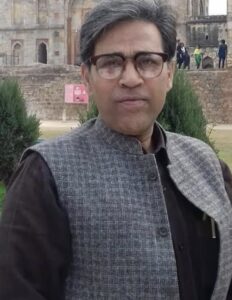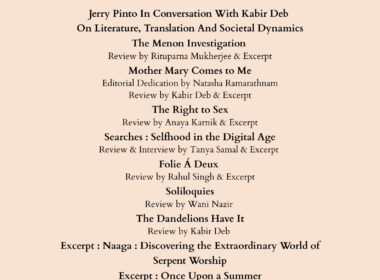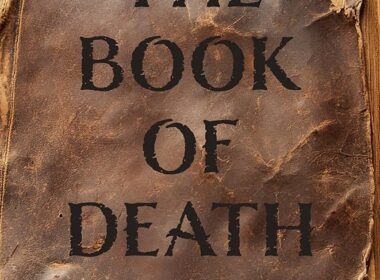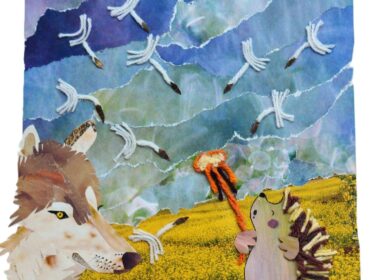Excerpt The Book of Death
By Khalid Jawed
Tr. By A. Naseeb Khan
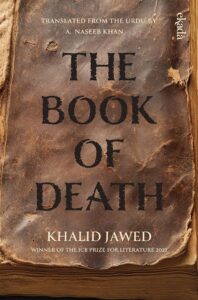
Image Courtesy of Westland Books
When I woke up the sun had already climbed high. My mother was not on the floor. She was not in the house either. She had gone somewhere. Her drum lay silent in one corner. My father had been dashing around with other people from the neighbourhood, searching for her. She couldn’t be found. I rushed out of the house. It was the autumn season. Dry leaves and twigs were being trampled under my feet. And from them came the sound of my mother’s dry laughter. I ran and ran and perhaps reached the city’s border where there is a desolate mound of soil. I saw my mother on the mound in the distance. But she disappeared, then resurfaced, and vanished again. My mother then shrank to a dot, moving further and further away until she disappeared completely behind the mound where the graves of war prisoners lay. After that, she never hove into my sight. It was after then that I began to keep a knife hidden in my knickers. I wave the knife, drawing lines in the space. I want to kill my father, and smear his blood on my face. What is all this? Is it a comedy or tragedy? Perhaps both? But who is the protagonist of this drama? Certainly not me. Even though I have written the script of this drama, I am unable to appear on this stage even as a villain. I am but a gloomy and dismal shadow. Quaking in the limelight on the stage is neither the shadow of a human nor any object. This is not a shadow meant to be visible in light. It is the shadow of a filthy abuse suspended in the air. It is the shadow of a shamefaced wind sitting in the darkness with its head burrowed into his arms and shins. Therefore, the scream of tragedy can never be heard on stage. The feeble, discomfited scream, tumbling amidst kicks, never aligns with the songs written for a tragedy. It had no rhythm, no melody and no harmony. It is only the muffled, unrecognizable voice of a stomach worm. It is the scream that turns this tragedy into a comedy. So the grand, moral stage of the tragedy kicks it away with contempt, ordering its departure. The curtain falls, then rises again. But the shadow remains seated, bowing in darkness. The theatre continues. The despairing scream is unable to even garner a single applause. The scream whimpers, bursts into laughter and then goes mad. It begins to crawl towards the mad, dirty wind from which it was born. There in the darkness it remains slumped, and here the theatre goes on.
Khalid Jawed is one of the leading Urdu novelists today. He is the author of fifteen works of fiction and non-fiction, and is a recipient of the Katha Award, the Upendranath Ashk Award and the UP Urdu Academy Award. He is a professor at Jamia Millia Islamia University. Khalid Jawed was awarded the JCB Prize for Literature (2022) for the English translation The Paradise of Food of his book Ne’mat Khana.
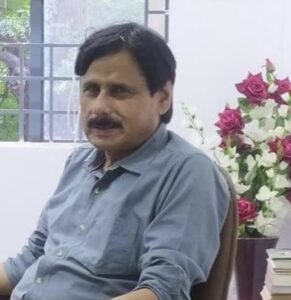
Translator
A Naseeb Khan is a bilingual poet, translator and author. Recipient of the Delhi Urdu Academy Award, his poems have featured in multiple Urdu anthologies including Rip Not the Sore and Naee Nazm Naya Safar. As a translator, he has several credits to his name, including a monograph on Moin Ahsan Jazbi, and Ghalib’s couplets included in the Evolution of Ghalib.
